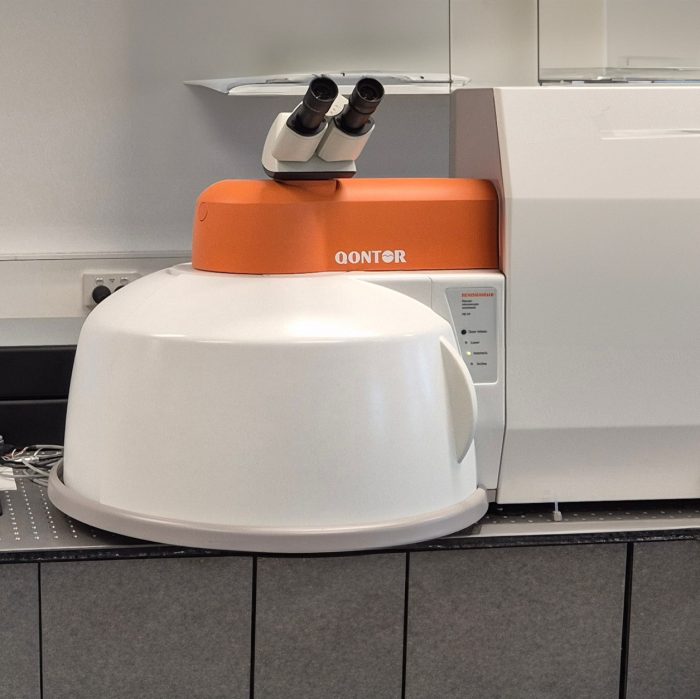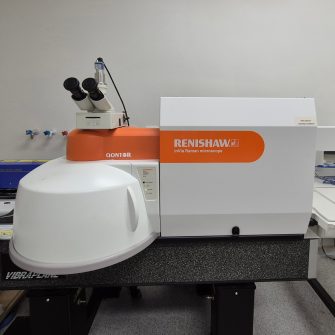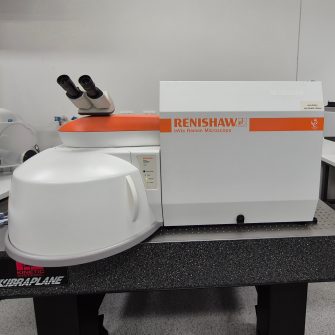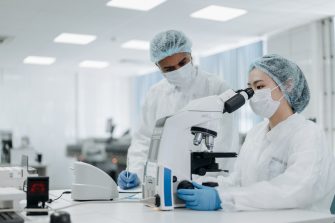Renishaw - inVia Qontor Hilmer - Raman Microscope

Description
The inVia Qontor Hilmer is a research-grade Raman microscope located in the Hilmer building (E8). It prioritises ease of use with features like automated focus tracking and measurement queuing, while offering high-performance capabilities and a versatile range of excitation laser options (355, 532, and 830 nm) for diverse research applications.
Specifications
-
Offers various laser wavelengths (355 nm, 532 nm and 830 nm) with different gratings for optimal analysis depending on the sample.
Default settings:
- Raman using 532 nm (green) diode laser with 1800 l/mm grating
User configurable settings:
- Raman using 532 nm with 1200 l/mm grating
- Raman using 830 nm with 1200 l/mm grating
Configurations requiring lasers other than the default:
- Raman using 355 nm with 2400 l/mm grating
- Raman using 532 nm with 2400 l/mm grating
- Raman using 532 nm with 600 l/mm grating
- Raman using 532 nm (green) diode laser with 1800 l/mm grating
-
- High Resolution: Standard operation provides a laser spot size of 1.5 microns at 50x magnification. Confocal mode can achieve an even smaller spot size of 0.5 microns.
- Fast Imaging Techniques using StreamLine TM which utilises a laser line for rapid image generation.
- Fast Imaging Techniques StreamHR TM which employs a laser spot for high-resolution imaging with pixel sizes as small as 50 nm.
Applications
- Biological and medical research
- Cell & tissue analysis
- Intracellular mapping of biomolecules - Resonance Raman spectroscopy of chromophores
-Studying pigments, dyes, and other coloured molecules - Material science - Polymer analysis
- Semiconductor research - Corrosion studies
Instrument location
Spectroscopy Laboratory location
Ground Floor, Room G31
June Griffith Building (F10)
UNSW Sydney Kensington NSW 2025
Phone: 02 9385 9795
Email: spec@unsw.edu.au
Access
-
Email
spec@unsw.edu.au
Parent facility
Explore more instruments, facilities & services
Our infrastructure and expertise are accessible to UNSW students and staff, external researchers, government, and industry.




